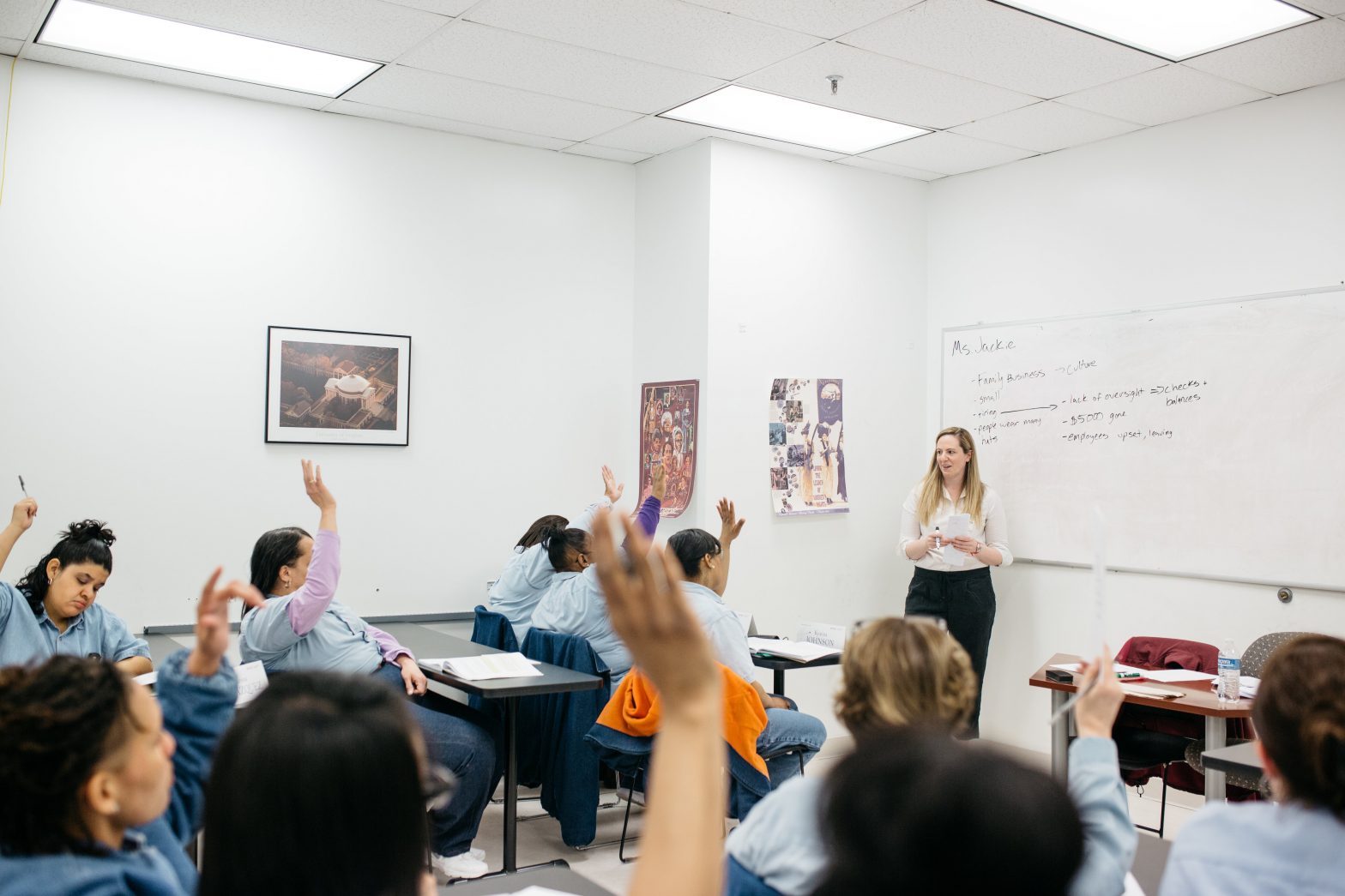On May 10, the first class of students since 2019 will graduate from the Resilience Education program at Fluvanna Women’s Correctional Center. The graduation also marks the first time program participants will receive UVA course credit for their studies.
Resilience Education is a business education program designed to provide inmates with the tools they need to succeed post-release. With more than 650,000 people released from American prisons every year, Resilience Education aims to combat the primary drivers of recidivism—unemployment and social ties—through its classes taught by MBA students. While the program was started at Darden more than a decade ago, it has changed immensely since its conception with an entrepreneurship-focused curriculum.
Although entrepreneurship is still a major part of the Resilience Education curriculum, the courses have shifted to better meet the needs of its participants. “We started to realize that it wasn’t just going and getting a job … or starting a business,” says co-founder and Executive Director Tierney Fairchild. “A lot of people are incarcerated because of financial challenges, [because] of poverty.” As a result, financial capability and business foundation courses have been incorporated to prepare students for life after incarceration.
“It’s taught me to never let your past define your future,” says Resilience Education graduate Cereatha Howard. Howard has stayed involved with the program since her own release from FWCC in 2014, and is now a mentor for other formerly incarcerated people. “When you get out … you don’t know where to go … or where to start. And having people like us … [that have been] home and doing well … I tend to know how to help people look for resources.”
To help navigate life after incarceration, the Resilience Education program has expanded its network of post-release support through its Resilient Professional Community. While the network is currently in beta, the RPC provides a professional support network for Resilience Education graduates and other formerly incarcerated individuals.
“We actually can reconnect with them, and help them build a connection, both with each other and with trusted allies that want to support them in their journey to … flourishing in their communities,” says Fairchild about the RPC.
For graduates and volunteer teachers alike, both the Resilience Education program and the RPC network have been impactful. “Resilience Education is actually one of the reasons I chose Darden as a business school,” says Jackie Temkin, who volunteered regularly with the program during her time at Darden, and is now a mentor in the RPC network.
“[Resilience Education] has completely changed the way I think about … hiring. I think employers have a lot of trouble finding and retaining employees, but a lot of the time … it’s because they just have a really bad hiring process,” Temkin says. As the owner of Afton Design Co.—a local graphic design studio—Temkin has adopted a hiring process where she seeks to “eliminate unnecessary barriers … and requirements” that are often present in the recruitment process.
While Resilience Education had to pause a significant portion of its program during the pandemic, it is once again up and thriving. Both the Wharton School and Columbia Business School now partner with the program, expanding its impact significantly.
Beyond anecdotal success, Resilience Education has data that shows the positive impact of its program. Upwards of 1,000 incarcerated graduates have completed the program, which boasts a 7 percent recidivism rate. Compared to a national rate of 68 percent of releasees being rearrested within three years, this number is exceptionally low.
Fairchild attributes much of the program’s success to its community-driven approach. “This professional community is a place, it’s by and for our individuals. We have a community advisory board which started out as our design team, these are all formerly incarcerated graduates … they know what they need,” she says.
Looking to the future of Resilience Education and its professional network, Fairchild says, “We believe that what [we are] going to be doing is taking this more nationally.”
For now, Resilience Education is thriving locally. Twenty-seven students will be honored during the Fluvanna Women’s Correctional Center graduation ceremony, and preparing to enter the next stage of their post-release planning.
